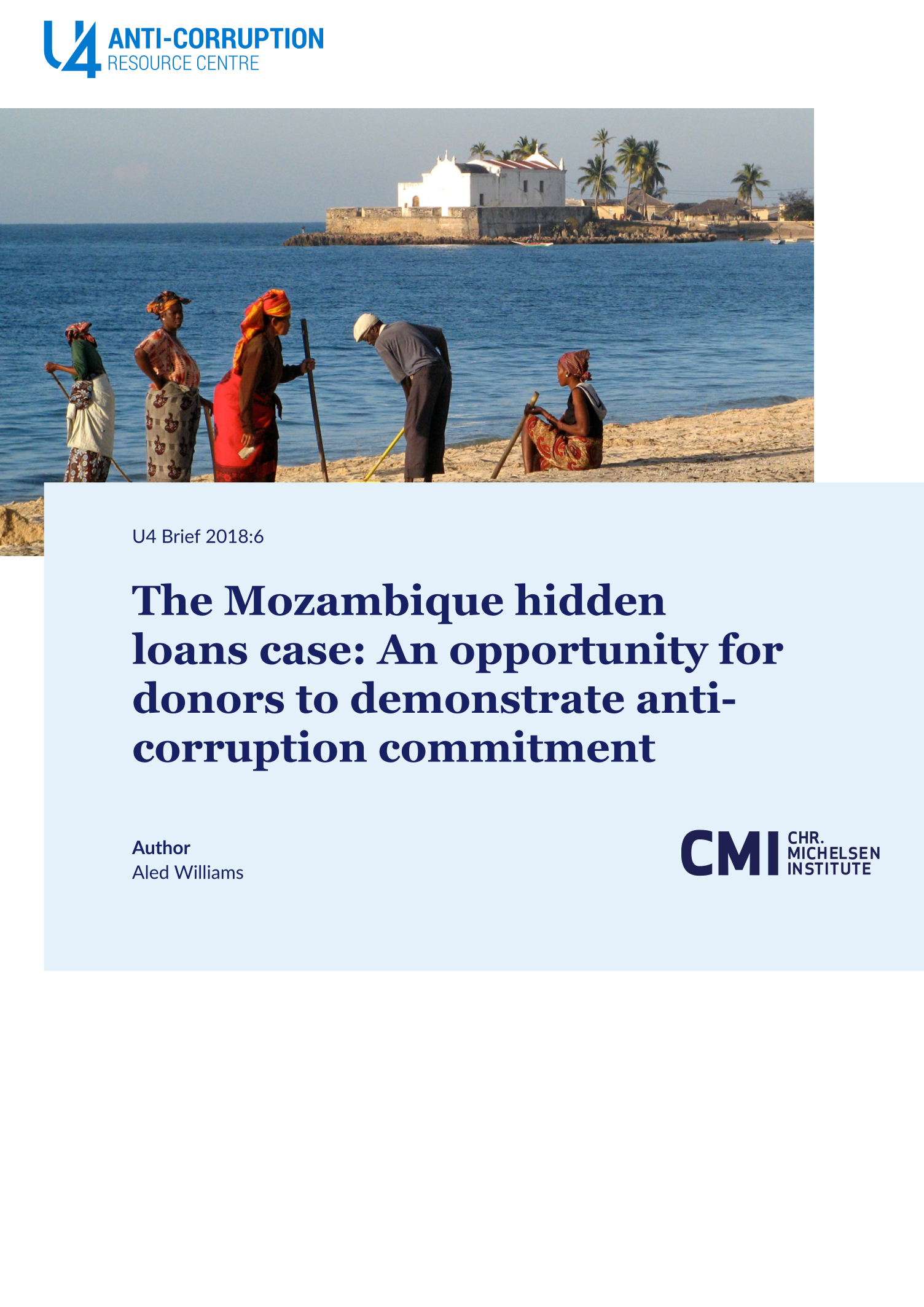Main points
- Secrecy persists around the Mozambique loans case and cooperation with the Kroll audit was limited.
- Business plans for the three companies involved were not credible and there is a likelihood of misconduct and rule-breaking on many sides.
- Development partners to Mozambique should closely coordinate with ongoing investigations in the UK and USA.
- The administrative tribunal in Mozambique should be supported.
- Development partners should look into setting-up a specialised anti-corruption court and supporting victims’ lawsuits.
- The application of visa and travel bans on individuals found guilty of wrongdoing should be considered.


